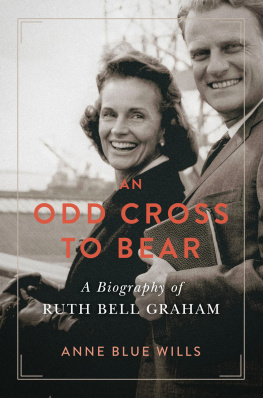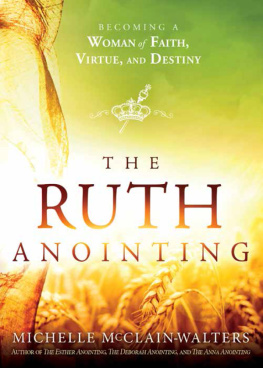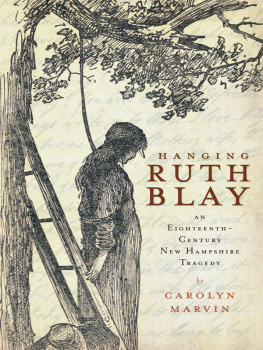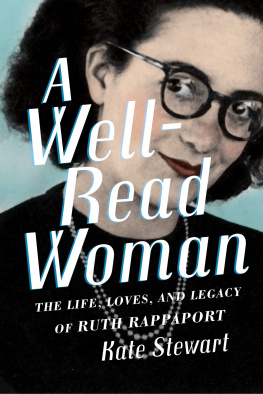
The Appalling Strangeness of the Mercy of God
The Story of Ruth Pakaluk Convert, Mother, and Pro-Life Activist
Edited with a Biographical Overview and Afterword
by
Michael Pakaluk
Foreword by the Most Reverend Daniel P. Reilly, D.D.
Introduction by Peter Kreeft

IGNATIUS PRESS SAN FRANCISCO
CONTENTS
FOREWORD
When a mother of six dies at forty-one, it is tragic. But it is not always a tragedy.
When someone has grown to embrace the Catholic faith, striving to live its tenets and to meet life's challenges with a hope, love, and joy that come from a deep commitment to Jesus Christ and an insuperable confidence in him, there is a fullness of life even if not marked by the fullness of years.
Such was the sense among Ruth Pakaluk's family and friends when Ruth died in 1998. To those who knew her, she continues to inspire. To those who didn't, this book offers that opportunity.
These pages, containing excerpts from Ruth's correspondence with family, friends, and others, give us a very personal and honest glimpse of the life and spiritual growth of a woman who in high school abandoned her belief in God but in her twenties became Catholic. It is a story of a Harvard grad who was a stay-at-home mom. It is an account of a wife and mother who saw meaning, purpose, and abundant opportunities for holiness in raising a family, struggling to pay bills, rushing to ballgames, singing in her parish choir, and teaching CCD.
Along the way she would bear seven children and bury one. She would debate abortion on college campuses, host her own television show, and become the president of a statewide pro-life organization. When her children were all in school, I hired her as the director of our diocese's Respect Life Office. Through it all, she battled breast cancer with a wit, grace, and joy of life that inspired longtime friends and casual acquaintances alike.
People would frequently comment on Ruth's selfless character, boundless optimism, and fervent faith. Ruth would respond, "Anyone can have this!"
Her zest for life and her zeal for the faith were gifts from God. They are gifts offered to us all that we might find strength, happiness, and peace not just in the absence of trials but, indeed, in their midst. So equipped by grace, our tragedies can become triumphs.
I pray these pages will remind you of the abundance of God's mercy and inspire you to be ever more open to those graces which strengthen us for our journeys and see us to our eternal end.
The Most Reverend Daniel P. Reilly, D.D. Bishop Emeritus of Worcester
INTRODUCTION
Peter Kreeft
In this book you will meet a truly wonderful person. There are few things in life more precious than that. Even meeting a great fictional character enriches your life. But this one is real.
Since Ruth was a woman who loved God and loved life, this book of her letters and speeches is a book for everyone who loves God and who loves life. But it is especially helpful for mothers, especially stay-at-home mothers, homemakers, people with cancer, parents faced with leaving their children through death, and people who care about abortion.
How to describe it in a few words? All the following adjectives describe Ruth herself as well as her letters and her book.
Utterly honest, human, "homely", and humble. Simple. Direct. Full of the ordinary, but full of a light that shines on or through ordinary life, a light that most of us simply don't see twenty-four hours a day, seven days a week.
And always cheerful. Surrounded by many small children; infected by cancer; suffering in continual pain for seven years; facing uncertainties about death and then certainties (which is worse?); maligned and misunderstood for converting to Catholicism, for having "too many" children, for being consistently pro-life; working harder for the culture of life while in poor health than most people ever work when in perfect healthyet always cheerful. Like Mother Teresa. Like John Paul II.
They show us that cheerfulness is neither a temporary feeling nor a genetic predisposition but a choice. A matter of free choiceof will, not emotion. This cheerfulness is not a teeth-gritting, "stiff upper lip" cheerfulness but one grounded in truth and in fact, in the certainty of the goodness and wisdom and power of God. (From these three non-negotiable premises logically follows the astonishing conclusion of Romans 8:28, and the cheerfulness it generates.)
Full of faith, in all its senses: personal trust, personal fidelity, theological orthodoxy, and immediate acceptance of revealed data. Ruth had a brilliant mind, but I'm sure she would have loved the Southern Baptist preacher's famous definition of faith: "If God said it, I believe it and that settles it." Honesty often expresses itself in simplicity, even (especially!) in brilliant minds. (Read Saint Thomas Aquinas.) This simplicity was one of the secrets of her cheerfulness.
Full of hope, especially when things are most hopeless. (That's the whole hard heroism and preciousness of hope.)
Full of charity, of love. The real thing, not imitations. Full of the love of God, which is so immediately translated into love of neighbor that its heavenly origin becomes invisible, like air full of light.
Yet also hardheaded, rational, clear. (Why did I say "yet", as if there were some tension? Exactly the opposite: it is all of a piece.) Brilliant, evenin the sense that a light is brilliant, not in the sense that an overly clever scholar is "brilliant".
What was her secret? It's no secret. It's all here in print. Just meet her and see.
The reader must be warned not to bog down in the simple, homey, hobbitlike details of the first few letters. The letters start slow. It's right that they do. They are like the first fifty pages of The Lord of the Rings. Acceleration takes place, in due time, right up to the stunning conclusion, on p. 209.
I met Ruth five or six times, mainly at Boston College, where she gave the most persuasive, irresistible, and winsome pro-life talks I have ever heard. To explain my impression of her, I have to tell you a story that may sound strange, but it is right on target, on her wavelength.
A student asked a famous Zen Buddhist roshi (master) to teach him the secret of Zen. He agreed and promised the student that if he obeyed everything the master told him to do, he would attain satori ("Enlightenment"). The student came to live with the master in his monastery. Every day, the only command the master gave to the student was "Wash your dishes!" and the student dutifully obeyed. After a month, the student, impatient, asked the master when he would begin teaching him the secret of Zen. The master replied, "I have been teaching you every day, but you have not learned." "But master, all you have told me to do is to wash my dishes." "That is true, and if you had obeyed me, you would now be enlightened." "But I did obey you, master. I washed my dishes every day." "No, you did not. You never washed your dishes. You have never washed your dishes in your life." "But master, what did I do, then?" "You wobbled."
Ruth did not "wobble". She was totally "there" for everyone she talked to. When she spoke to an audience of one hundred, every one of them felt as if there were only two people in the room, not one hundredbecause that's how she felt.
My first reaction, upon reading that people in Worcester had wished to consider opening her cause for sainthood, was surprise. Not because there was anything in Ruth that would contradict such a verdict, but because my concept of a saint, like that of most Catholics, I suppose, was a cartoon concept, full of strange and unusual accidentals like incredible penances, violent martyrdoms, and supernatural revelations. But the greatest of saints was the humblest, simplest, quietest, and most ordinary mother in Israel, although the Mother of God himself. And especially today, in the age of the laity and of the humanism of John Paul the Great and Vatican II, we need examples of "ordinary" saintsbecause all are called to be saints, and most of us are "ordinary".
Next page










